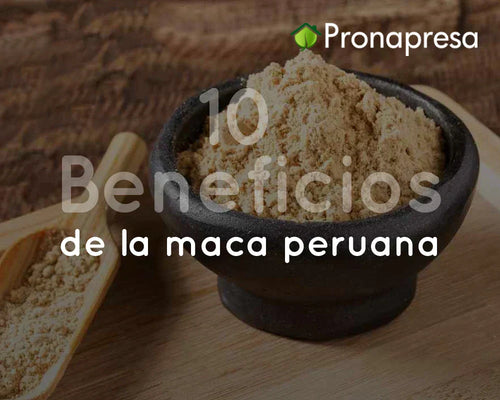
What is nitric oxide and how does it act in the body?
Nitric oxide is a gaseous molecule that the body produces naturally. Its main function is to relax blood vessels , allowing for more efficient circulation. It acts as a vasodilator , meaning it dilates arteries and veins, which improves blood flow and reduces blood pressure.
This gas is synthesized primarily in the endothelium , the inner lining of blood vessels. When endothelial cells produce enough nitric oxide, the heart works less hard to pump blood, thereby reducing the risk of developing hypertension and other cardiovascular diseases.
Main benefits of nitric oxide for cardiovascular health
1. Improved blood flow and healthy blood pressure
One of the most well-known benefits of nitric oxide is its ability to lower blood pressure . This is because it relaxes and dilates blood vessels, allowing blood to flow unobstructed. Keeping blood pressure under control is essential for preventing serious diseases such as:
- High blood pressure
- Cerebrovascular accident (CVA)
- Myocardial infarction
Additionally, people with optimal nitric oxide levels have a lower risk of developing atherosclerosis , a condition in which arteries harden due to plaque buildup.
2. Prevention of heart disease
Adequate nitric oxide in the body helps reduce inflammation and oxidative stress in blood vessels, two factors associated with coronary artery disease. By preventing plaque formation and improving arterial elasticity, nitric oxide contributes to heart protection and prevents problems such as:
- Angina pectoris
- Heart failure
This protective effect is especially relevant for those with a family history of cardiovascular disease or who lead a sedentary lifestyle.
3. Improved sports performance and physical endurance
Nitric oxide is also popular in the world of sports, as it improves physical performance by optimizing the delivery of oxygen and nutrients to the muscles . This is possible thanks to vasodilation, which allows tissues to receive more oxygen during exercise.
For this reason, many athletes use supplements that stimulate nitric oxide production, such as L-arginine and L-citrulline . These compounds not only increase endurance but also accelerate muscle recovery after training.
4. Reduction of the risk of thrombosis
Nitric oxide has antiplatelet properties, meaning it reduces platelets' ability to form clots. This is crucial for preventing thrombosis and pulmonary embolism , conditions that can be fatal if left untreated. It also helps maintain healthy blood vessels, minimizing the risk of circulatory problems.
5. Improved cognitive function and brain health
Although primarily associated with cardiovascular health, nitric oxide also has a positive impact on the brain. By improving blood circulation, it helps more oxygen and nutrients reach the brain, promoting cognitive function and reducing the risk of neurodegenerative diseases like Alzheimer's .
Factors that reduce nitric oxide production in the body
Despite the many benefits of nitric oxide, there are several factors that can limit its production in the body, such as:
- Unhealthy diet , low in nitrates and antioxidants
- Lack of physical exercise
- Chronic stress
- Aging , as the body's ability to produce nitric oxide decreases with age
Maintaining a healthy lifestyle is essential to ensuring consistent nitric oxide production and protecting long-term cardiovascular health.
Natural sources that increase nitric oxide production
Incorporating certain foods into your diet can help naturally boost nitric oxide levels. Some recommended options include:
- Beetroot : Rich in nitrates, which are converted into nitric oxide in the body
- Spinach and arugula : They contain high levels of nitrates
- Pomegranate : It has antioxidants that protect nitric oxide from degradation
- Citrus fruits : Vitamin C improves nitric oxide synthesis
Additionally, L-arginine and L-citrulline supplements are popular for stimulating the production of this compound, especially in people with circulation problems or athletes.
Who benefits most from nitric oxide?
Nitric oxide is especially useful for people who suffer from or are at risk of developing cardiovascular problems, such as:
- Patients with hypertension or high cholesterol
- Sedentary or overweight people
- Athletes seeking to improve their performance
- Older people , to combat the effects of aging on circulation
It is also a safe option for those looking for natural ways to improve their health without resorting to conventional medications.
How and why does nitric oxide benefit your cardiovascular health?
In short, nitric oxide acts as a silent guardian of your cardiovascular system. By relaxing blood vessels, improving blood flow, and reducing blood pressure, it helps keep your heart in optimal condition. Furthermore, its anti-inflammatory and antiplatelet effects make it a powerful ally in preventing heart disease and stroke.
Incorporating healthy habits, such as eating nitrate-rich foods and exercising regularly, can boost your body's natural nitric oxide levels. The result will be better circulation, increased energy, and stronger cardiovascular health over time .
Remember: taking care of your heart is a long-term investment, and nitric oxide is a key tool to achieve this. Start improving your lifestyle today and enjoy the benefits of optimal circulation!























































